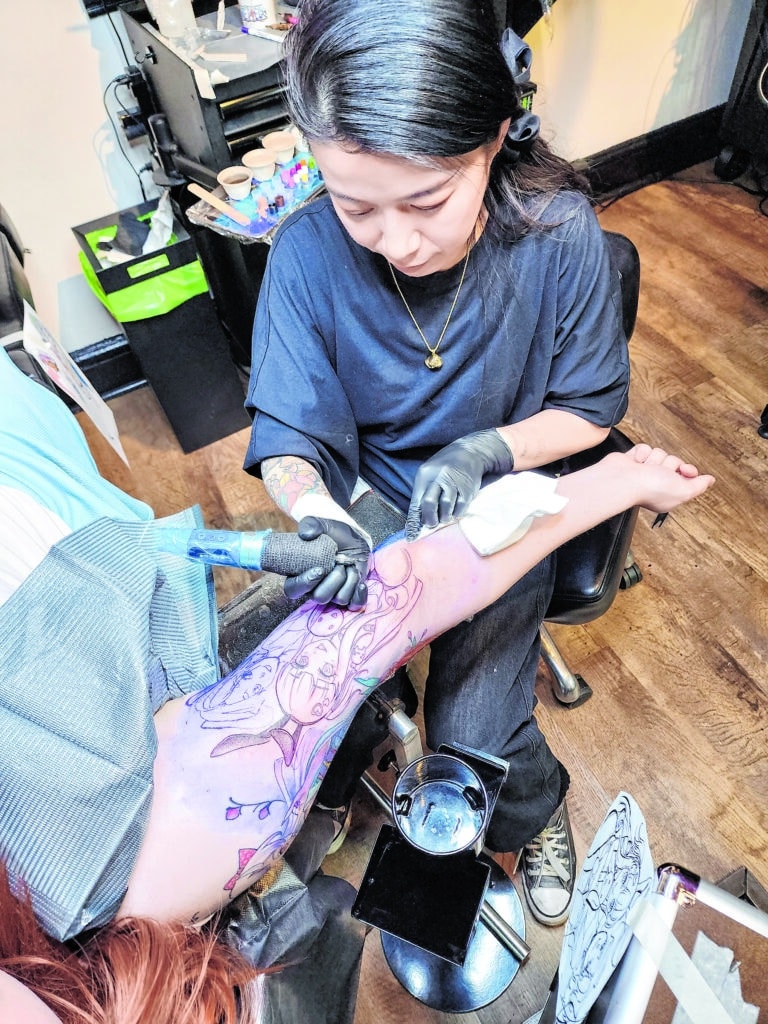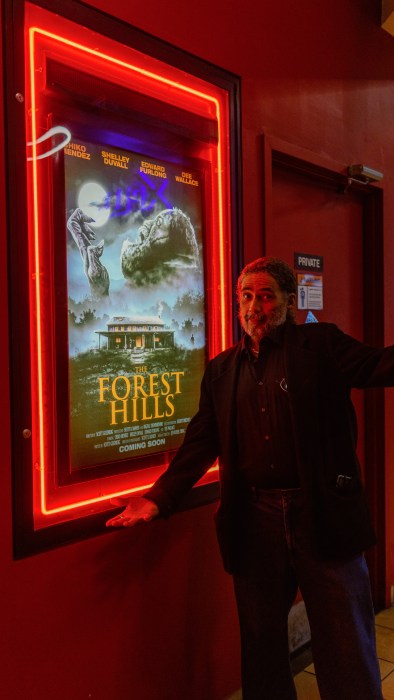Growing up in Tokyo, Japan, Nasa Tsuchiya always loved to draw. As a child she had a strong interest in anime and the art of video games and hoped to one day become a cartoonist. However, as so often happens, adolescence took her down a different path. She started spending more time just hanging with her friends and lost who she wanted to be. Fresh out of school she took a job at a hostess bar where she made decent money. She also partied with her friends, drinking and playing poker until all hours of the night. She was languishing. “One day I was thinking ‘I have to get out of this. All my friends are bad, and we play poker and drink and we don’t even know what day today is. We don’t even know how long we played poker.’ So I wanted to get out of that environment.” Tsuchiya recalled.
This led to a pivotal moment for Tsuchiya. The man she was dating at the time had some tattoo magazines, and there was an ad in one of them for a tattoo school. “And I thought, ‘oh, If I pay, I can learn tattooing. That’s cool.’” When she saw the advertisement, it reminded her of her childhood love of drawing, and her ambition to be a cartoonist. Her passion for art reignited, and she was determined to become a tattoo artist.
Tattooing is still very taboo in Japan because of the criminal element. Tattoos are often associated with the Yakuza, a Japanese organized crime syndicate. “If you have a tattoo in Japan, you can’t even go to the gym. No pool, no sauna, you can’t even go to some beaches. It doesn’t matter if you are female or male, it’s taboo. If you have tattoo, you are bad person. That’s what people usually think.” Tsuchiya said.
Attending the tattoo school suited Tsuchiya, since she didn’t feel comfortable putting herself out there. “I’m pretty shy. So I can’t really be like ‘hey, I wanna be apprentice, can you teach me how to tattoo?’ I cannot be like this.” She started at the tattoo school before refining her drawing skills, which seems backwards to her in retrospect. “My drawing was terrible. So I learned to tattoo first. I know I have to draw learn drawing.” She wanted to improve her drawing, but her friends and acquaintances were not supportive. They actually discouraged her from going to art school. More and more, she knew she had to make a fresh start, and so she moved to New York in 2007.
When Tsuchiya arrived, she didn’t speak English. She got her student visa through language school and began classes immediately. She also enrolled in art school at the same time. “In the morning I went to language school, and in the afternoon I went to art school, but I couldn’t understand what my teachers were talking about, you know.” But she stuck by her commitment to become a tattoo artist in the US. Still, there were times when it felt overwhelming and frustrating. “One day I came home and cried, I was so frustrated. I didn’t understand what people were talking about. I wanted to express myself, but I was always frustrated. I cried so much.” It took about two years for her to get a strong grasp of English, and then things started to improve. In 2010, she started seeking employment at some local tattoo shops, but her lack of a portfolio made this difficult. Finally, a shop took a chance on hiring her, and from there she was able to build a strong portfolio of work.
Tsuchiya has noticed an increase in the number of women working in the industry. When she first started in the U.S., it was rare to see another woman tattoo artist. “When I went to the first shop in the US, every single person is a male artist. No female. Maybe only the piercer, she is female. But everybody else was a guy.” These days, however, more and more shops are hiring women. In 2013 she even worked at an all-female shop in Queens.
And there have been other advances as well. Both Tsuchiya and her coworker were pregnant at the same time, and they worked through their pregnancies. The shop she works in offers maternity leave, and when she returned, they helped her breastfeed comfortably.
From a wild youth to solidly established in her chosen field, Tsuchiya’s story proves its possible to achieve your goals. She took her passion for drawing and turned it into a career through hard work and perseverance. Nasa Tsuchiya is currently working at Lark Tattoo in Westbury. To view her work, check out her Instagram at @nasatsuchiya.
The United States is a nation of immigrants. Their stories can inspire and amaze. Each one is a glimpse of another perspective, enriching and encouraging. Do you have an immigrant story to tell? Email aolsen@antonnews.com with a brief biography and contact information. Your story could be featured in a future issue.
Immigrant Stories: From Tokyo To Long Island, By Way Of Tattoo School



























